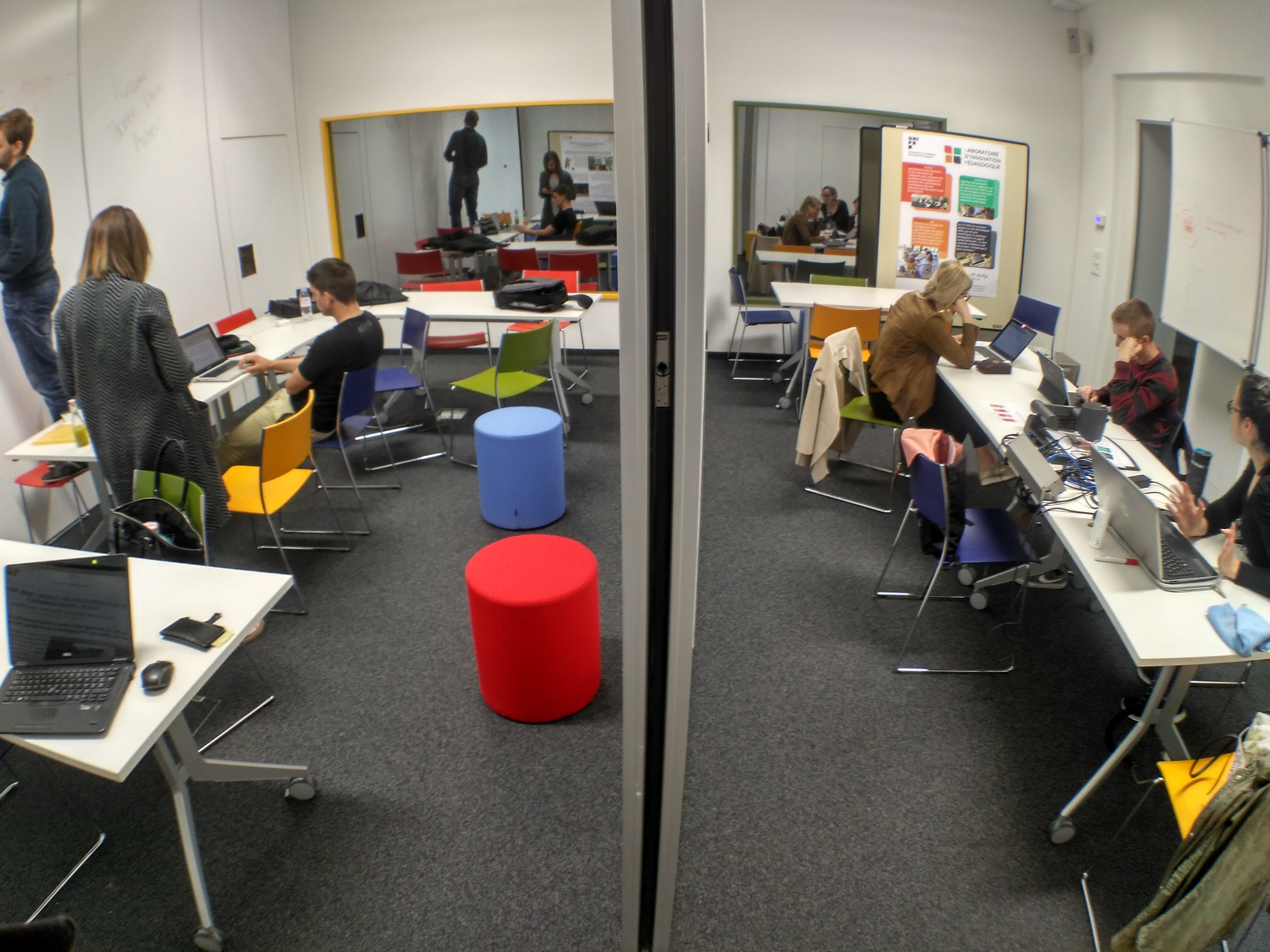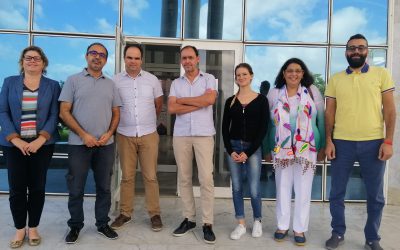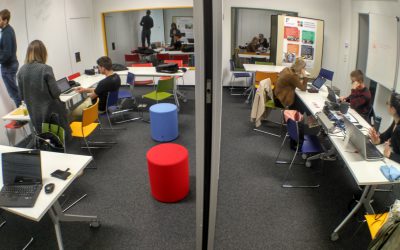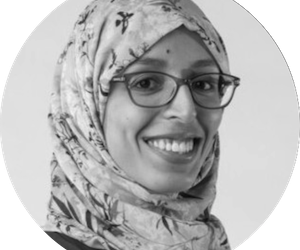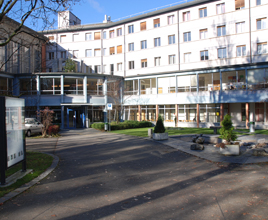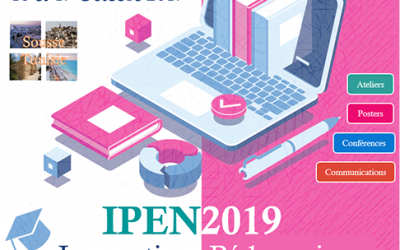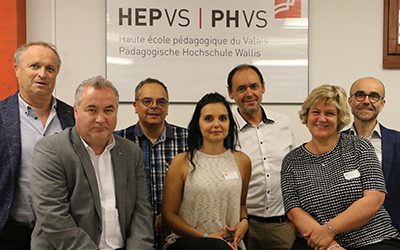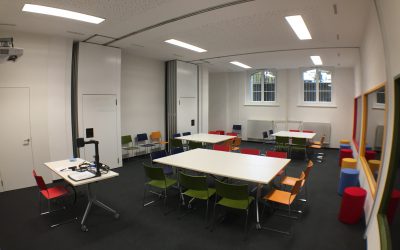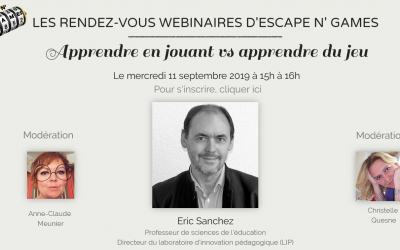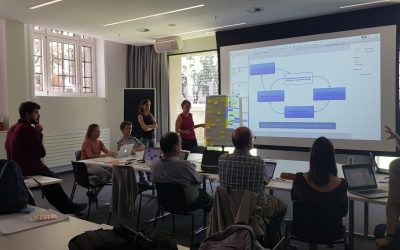co.LAB – A Digital Lab for the co-Design, co-Development and co-Evaluation of Digital Learning Games
Interest in Digital Learning Games (DLGs) has flourished at all levels of education. Digital Learning Games contribute to increasing students’ motivation and engagement, and are effective tools to support learner centered teaching practices. However, the design, development and uses of DLGs remain an issue due to the gap between teachers, game developers and researchers.
At the crossroads between educational and computer sciences the goal of the co.LAB project is to improve the design, development and uses of Digital Learning Games at all educational levels in Switzerland. This goal will be achieved by the development of what we call the co.LAB: a collaborative methodological framework between teachers, game developers and researchers in educational science, associated with a collaborative digital platform dedicated to co-design, co-development and co-evaluation of DLGs.
With the development, implementation and assessment of the co.LAB methodology and digital platform, we want to answer the following research questions (RQ).
RQ1: What methodology is needed to support collaborative DLG design and development?
RQ 2: What are the digital platform features necessary to support the collaborative DLG design and development process?
RQ 3: What are the effects of the methodology and digital platform on development cost and duration (efficiency)?
RQ 4: What are the effects of the methodology and digital platform on the quality of DLGs produced (relevance and effectiveness)?
RQ 5: What are the drivers for adoption of the methodology and digital platform by the educational, game developer, and research communities?
Following a design-based and mixed methodology, the co.LAB methodology and digital platform will be implemented and tested with the design, development and evaluation in real educational contexts of two showcase games dedicated to medical education (higher education) and computational thinking (secondary education). They will be used as a proof of concept. The experimentations will be carried out with classes both in a secondary school and at a university of applied sciences. The data collected will be based on an ethnographic approach on the one hand (questionnaires and focus groups carried out with stakeholders), and on the digital traces of users of the platform on the other hand.
By including a digital infrastructure for digital learning resources development and by providing, as a use test result, two digital learning games the project is fully in line with the PNR77 goals and more specifically with the module “Education, learning and digital change”. In addition, the co.LAB methodology, digital infrastructure and laboratory may serve both as an example of the introduction of digital in education and as a basis for future co-development of open digital educational resources in general.
Durée du projet
01/2020 – 12/2023
Financement
Fonds National Suisse

Requérants principaux
Dominique Jaccard HEIG-VD et Eric Sanchez, Université de Fribourg
Partenariat
Haute Ecole d’Ingénierie et de Gestion du Canton de Vaud
Membres du projet
Estelle Prior Unige
Mariem Jaouadi Unige
Membres associés
Nadine Mandran LIG/U. Grenoble
Matthieu Vermeulen IMT Nord Europe
Emmanuel Beffara U. Grenoble
Gaëlle Guigon IMT Nord Europe
Jérémie Humeau IMT Nord Europe
Anthony Fleury IMT Nord Europe
Contact
Eric Sanchez (eric.sanchez@unifr.ch)
Dernières actualités relatives à cette recherche
1ère rencontre de LETS – Learning Lab network à Sousse !
Cette semaine, le LIP était en déplacement à l’Université de Sousse (Tunisie) pour le premier séminaire de recherche du projet LETS – Learning Lab Network financé par la HES-SO. Les travaux sont menés avec nos partenaires : Lilia Cheniti et Ouajdi Korbaa (Université...
Offre de stage
Le LIP recrute un-e stagiaire pour intégrer son équipe en charge de la mise en place d'un learning lab. Cette offre s'adresse principalement à des étudiant-e-s de sciences de l'éducation (niveau master) mais peut aussi s'ouvrir à d'autres domaines. Détail de l'offre...
Une nouvelle recrue pour le LIP
Le LIP accueille cet automne Mariem Jaouadi, nouvelle assistante diplômée. Mariem est titulaire d'un master en ingénierie logicielle. Elle a une expérience professionnelle de trois ans en enseignement et développement informatique. Le LIP se réjouit de pouvoir compter...
Séminaire des doctorants du CERF
Pour sa 9ème édition, le séminaire du CERF sera consacré aux présentations des doctorants de l'équipe.Le séminaire aura lieu le vendredi 4 octobre de 9:00 à 12:00 au LIP. Le programme prévoit la présentation de 5 thèses en cours et des discussions, en particulier sur...
Projet LETS : premier atelier à Sousse (Tunisie)
Du 15 au 18 octobre, le LIP sera en déplacement à Sousse pour le premier atelier organisé dans le cadre du projet LETS. Le travaux devraient permettre de finaliser le plan de management du projet et de travailler sur les premiers prototypes de learning labs qui seront...
Ludovia#CH 2020 : Jouer collectif pour se former et innover ? Numérique et communautés d’enseignants
Pour la troisième année consécutive, le LIP est partenaire de l'université de printemps Ludovia#CH qui se déroulera du 6 au 8 avril 2020. Le LIP participe en particulier à l'organisation du colloque scientifique qui, cette année, abordera la question des rapports que...
2ème journée romande des didactiques sciences humaines et sociales (SHS)
Le LIP était présent pour la 2ème journée romande des didactiques sciences humaines et sociales (SHS) qui a eu lieu à la HEP Valais le 5 septembre 2019. L'intervention d'Eric Sanchez portait sur la question de l'utilisation du jeu comme méthode pédagogique. A cette...
Learning Lab à Regina Mundi – Premiers tests !
Cet automne 2019, un premier prototype du Learning Lab est établi sur le site de Regina Mundi dans la salle C-01.109 (plan d'accès détaillé). Le Learning Lab 1.0 est un espace de travail et d’échange en libre accès pour les étudiant·e·s, les chercheurs et le...
Apprendre en jouant vs apprendre du jeu
Le mercredi 11 septembre 2019 à 15h à 16h, sur invitation de l'association d’Escape n’Games, Eric Sanchez est intervenu pour un webinaire intitulé « Apprendre en jouant vs apprendre du jeu ». L'intervention portait sur la question du débriefing dans le cadre de...
Projet PLAY, c’est parti !
Les partenaires du projet PLAY se sont réunis les 3 et 4 septembre à Sion (Suisse) pour le premier séminaire du projet qui a réuni des membres de la HEP Valais, de la HES-SO, du Musée de la Nature, de l’Alimentarium et du LIP. Les travaux ont été menés sous la...

